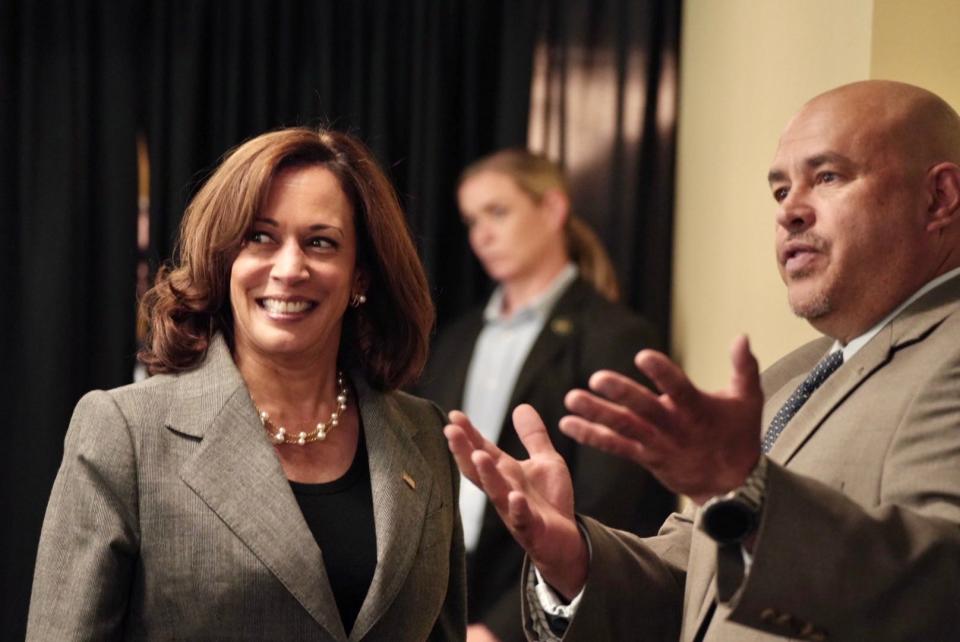Milwaukee needs a long-term fiscal solution. Our work proves we can deliver on one.
After many hours of public testimony, committee meetings, and floor debate, we recently led our respective bodies in adopting the annual City of Milwaukee and Milwaukee County budgets. These budgets, while imperfect in many ways, invest in the needs of our community and reflect the public engagement, coalition building, and compromise necessary to get big things done in a legislative body.
At both the city and county level, legislators are tasked with analyzing, amending, and adopting massive documents with major implications for people’s lives in an extremely short timeline. Both the Milwaukee County Board of Supervisors and the Milwaukee Common Council have about six weeks between the executive branch presenting their recommended budgets and adoption of a final spending plan.
County Supervisors and Common Council members must also weigh public concern in real time as we work through the numbers. Each year public engagement around the budget is robust and can be intense, though it is welcome as a sign of a healthy functioning democracy. We are often asked to explain decisions handed to us by our respective executives in their recommended budgets. It is on us to listen to our constituents and find workable solutions that balance the needs of our community with our immense fiscal constraints.
At the County Board, we listened to hundreds of paratransit riders and advocates who contacted us by phone, email, and in-person testimony distraught over the possibility of losing the paratransit taxi service next year. Through collaboration with many stakeholders, we were able to find a solution that funds the service for another year.
At the Common Council, residents consistently demonstrated to Council members that the community was not prepared for the significant cut to library services and reduction of two firehouses. With such limited funding available, we had to be creative and use available federal dollars as a stopgap to keep these departments functioning.
Once we have heard from our constituents at the many public hearings and town hall meetings we host throughout the community, we must condense the information we receive to build a coalition and satisfy the most people possible. No matter how the process unfolds, it requires negotiation and an openness to compromise. This means working with people you don’t agree with to arrive at a solution that is best for our residents.
There is no level of reduction that will allow us to budget our way out of the revenue crisis the city and county face while providing adequate services for residents. The County Board and Common Council have been able to avoid major cuts through a combination of smart budgeting and an influx of federal dollars, but this will only be possible for one or two more years. Without a solution, the City of Milwaukee will be required to eliminate 25 percent of its workforce by 2025. Milwaukee County will be unable to fund any non-mandated services — including parks, cultural institutions, and transit by 2027.
It is estimated that a 1 percent Milwaukee County sales tax could generate more than $180 million per year. As sales tax collections continue to grow every year, this revenue source can provide solutions to deferred maintenance, public safety, parks, transit, and human services while reducing property taxes. It will allow us to invest in key services that will positively impact our most underserved residents. These quality-of-life services and amenities also make metro Milwaukee a competitive region to grow businesses and attract and retain talent. We have been working with leaders throughout the state of Wisconsin to highlight Milwaukee’s value to the entire region and the solutions available to solve our challenges.
Despite how some may view us, Milwaukee is a place with a vast diversity of viewpoints. Every day, we work across ideological and political spectrums to get things done. Legislative skills such as listening to the public, building a coalition, and advocating for our priorities while being open to compromise show exactly why we are uniquely positioned to work with leaders at the state to negotiate on a revenue solution for Milwaukee.

We both have firsthand experience with the struggles that people in our community face. Our desires to solve these issues is what led us to run for office and seek leadership roles. We are hopeful that next fall we will not be having this same conversation at budget time. We are grateful for the relationships we have already built and that so many across the state have already been eager and engaged with this conversation. We both love Milwaukee and want it to be a place that everybody is excited to live, work, or visit with their families. With partnership, we can elevate Milwaukee and all of Wisconsin.
Marcelia Nicholson is the chairwoman of the Milwaukee County Board of Supervisors. Jose G. Perez is the president of the Milwaukee Common Council.
This article originally appeared on Milwaukee Journal Sentinel: Milwaukee needs a long-term fiscal solution. We can deliver one.

